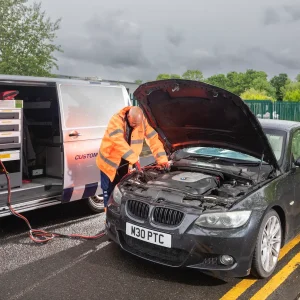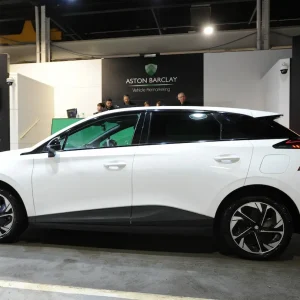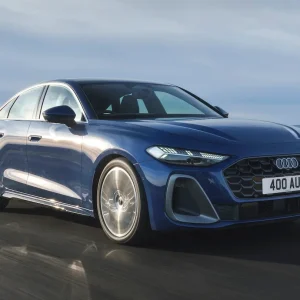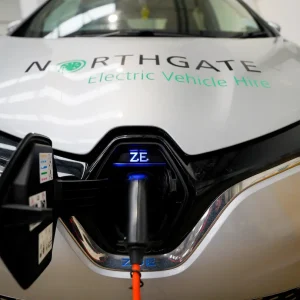The gap between petrol and diesel prices might be significant, but vehicles fuelled by the latter show no signs of relinquishing their position as the transport of choice in the minds of used buyers, reports Jack Carfrae
Fleets are more acutely aware than anyone of the current chasm between petrol and diesel at the pumps.
The fuel graphs we publish on page three of every issue of BusinessCar have shown a continual prising apart of the two most conventional fuels, and with costs as high on the agenda as they are and fuel at an all-time premium, there’s a strong case for ditching diesel and plumping for an increasingly efficient petrol.
Diesel vehicle sales overtook those of petrols in 2010 and have proved popular with high-mileage business drivers before and since. Significantly higher P11D prices for diesels make even less of a case for the fuel, but the strength of RVs – even those with higher mileages than equivalent petrols – keeps them ripe for the used market, as BCA’s communications director, Tony Gannon, reports: “Fleet and lease diesel cars continue to enjoy a substantial price premium over petrol, despite the differential in fuel costs and the diesel cars being sold at a higher average mileage. Typically the premium is between £1200 and £1500, equivalent to around 25% on average.”
BCA’s Pulse report revealed that the difference in RVs between the two fuels reached its peak in October last year, when diesels were commanding an average £1553 – 31.9% – more than a like-for-like petrol.
Not only are diesels commanding a price premium but they’re also coming onto the used market with significantly higher mileage than petrols, as Gannon says: “While petrol and diesel cars tend to enter the remarketing arena at very similar ages – 39.5 and 41.5 months respectively in January 2012 for example – there is a sharp divergence in the average mileage covered during that time. For petrol cars it is around 30,000 miles, for diesel cars, quite often double that figure.” The auction house’s exact mileage figures for sales of fleet and leasing sector vehicles in January 2012 peg petrol sales at 31,115 and diesels at 61,562.
And it seems BCA isn’t alone. The view across the industry is that diesel is so ingrained in the minds of fleet managers and used buyers as the fuel to have that even a difference north of 10 pence at the pumps isn’t enough to deter them.
Bryan Stringer, operations director at Alphabet, says the status quo will remain, despite higher prices: “At present, there’s no reason to change our outlook. Diesel RVs have not changed significantly and we’re not looking at diesel products any less favourably or petrol options any more favourably.
“Diesel is still generally regarded as the cheaper overall option on fuel costs, although my own view is that that will start to change. People will look at the car’s mpg and emissions and won’t be so concerned whether it’s a petrol or a diesel.” He also believes the gap in pump prices is likely to reduce in the long run, as increased demand will lead to additional diesel refining capacity, as more diesel comes on stream.
BCA’s figures show that second-hand diesel vehicles from the fleet and leasing sector continue to regularly outperform petrols by a small percentage. In January, petrol models sold by the firm registered at 92.2% against Cap clean, while equivalent diesels ranked at 94.5%. Gannon reports that there have been occasional “bottlenecks” where Cap performance for the two fuels has converged in recent years, but for the most part, diesel remains a small but significant percentage above petrol in this area.
Despite diesel’s stronghold, there are a number of high-efficiency petrol-engined vehicles gradually making their way onto the market. Ford‘s Ecoboost, Fiat‘s Twinair and the VW Group’s TFSI units are the most prominent, and while the majority are a way off the used market in any large capacity, they could potentially have an impact on the present demand and RV situation that separates the two main fuels.
Stringer says: “It would be surprising if the new, high-efficiency petrol products that we’re starting to see do not have an impact on remarketing diesels in the long run. But we definitely still see diesel maintaining its premium over petrol at present. I can’t see that changing until the new breed of petrol engines gains some real volume in the market.”
Roddy Graham, commercial director of Leasedrive, agrees, saying: “As petrol engines become more efficient with higher power outputs we would see diesel and petrol values becoming more aligned. This will only help to support this trend. We see new petrol-engine vehicles demanding a premium when they first appear in the used market. As volume increases, we see used values softening as they become the norm.”
Looking further ahead, Stringer says continuing developments in this field could have even more of an impact and make back some of the ground that it has lost to diesel, especially when the next generation of efficient high-power petrols hits the used market: “Now there are signs that petrol could start to make up lost ground thanks to this new generation of more frugal engines, like the three-cylinder unit mooted for future BMWs and Fords.” Stringer claims whole-life costs will remain the deciding factor for new fleet sales for now, though, which is one of the chief reasons diesel remains in first place.
Hybrid
Next to conventional vehicles, hybrids command an even greater RV hike than diesels on the used market, as Adrian Rushmore, managing editor of Glass’s, explains: “Hybrid cars currently enjoy an RV benefit over other fuel types. However, premiums have been eroding over the last 12 months even though the supply is extremely limited. Hybrid prices are going to be very sensitive to supply and it is a situation that will need to be monitored carefully during the rest of this year.”
The shortage in three- to four-year-old used vehicle stock across all types due to the recession is well documented, as are the resultant strong values of quality second-hand vehicles within that bracket. While this makes sense from a supply and demand perspective, this is yet another area where the strong RVs of diesel-engined vehicles have somewhat defied logic, as there are more of them available. Rushmore tells BusinessCar there are slightly more diesels under four years old on the used market, while Graham agrees, saying that this actually helped to buoy the values of petrol models: “Diesel remains a little higher, especially on the auction front. Within the fleet sector, the majority of vehicle sales are diesel, which has helped support used petrol values.”
Graham also says that the popularity of large, petrol cars overseas – and their relative lack of popularity in the UK – has resulted in a culture of exporting: “Modern diesel vehicles remain desirable due to the fuel efficiency and performance. We have seen the car supermarkets buy large volumes of diesel product in conjunction with smaller petrol vehicles. We have also seen some of the higher end executive petrol vehicles being exported.”
Despite hybrids gaining ground and the advent of clean, economical and powerful petrol engines, the view is that diesels will maintain their market stronghold and significantly higher RVs for now and, at the very least, the medium term. The difference in price at the pumps just isn’t enough to put fleets off, as Rushmore says: “Diesels should continue to hold a price premium in the used car market for the foreseeable future. Don’t forget, that the new price for a family-sized car is around £1300 higher. It would take a serious backlash from customers for the used car premium to be removed altogether. Alternatively, it would take a huge and sudden injection of diesel supply into the market. Either circumstance is very improbable.”
Gannon believes that petrol and diesel rise and fall together: “While diesel values are much higher, the BCA price trends always move in tandem and there are no instances of petrol values falling while diesel rises, for example. However, there are several instances where diesel values at BCA have climbed more sharply than petrol.”
Alphabet’s Stringer summarises: “We’ve seen massive investment in diesel by fleets and manufacturers. But if you look at a whole-life cost model then the best combination will win through, irrespective of whether it’s petrol, diesel or a hybrid.”





